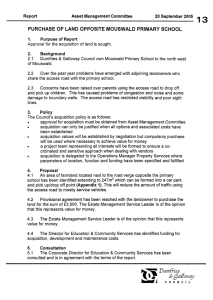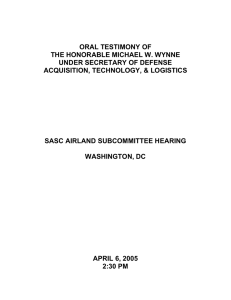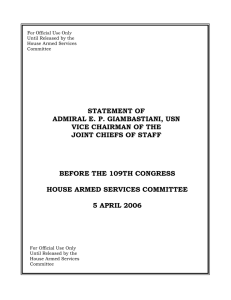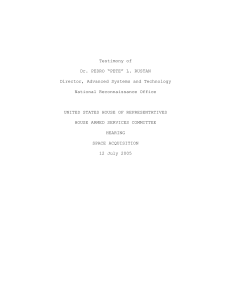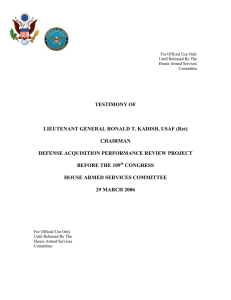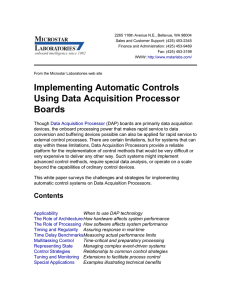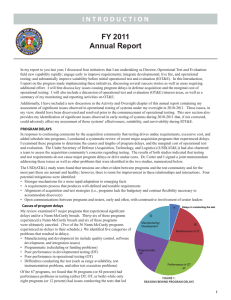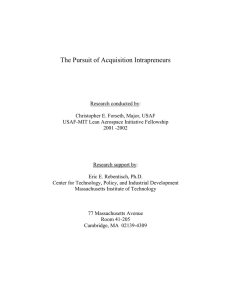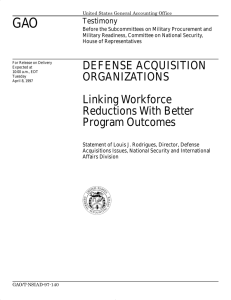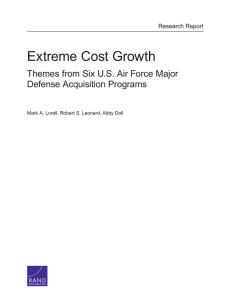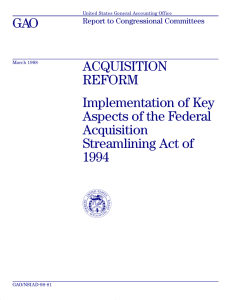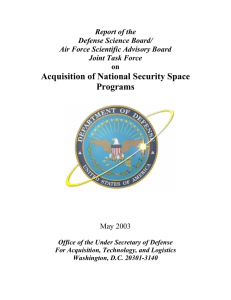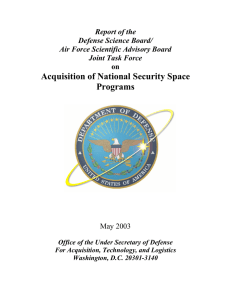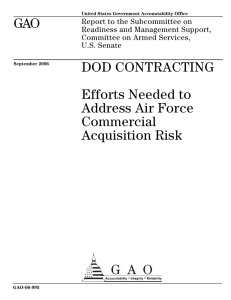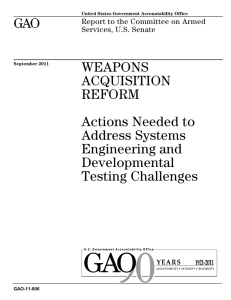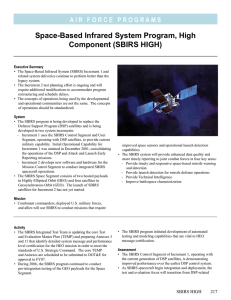For Immediate Release: Contact: Josh Holly (HASC), 202-225-2539 July 12, 2005
advertisement
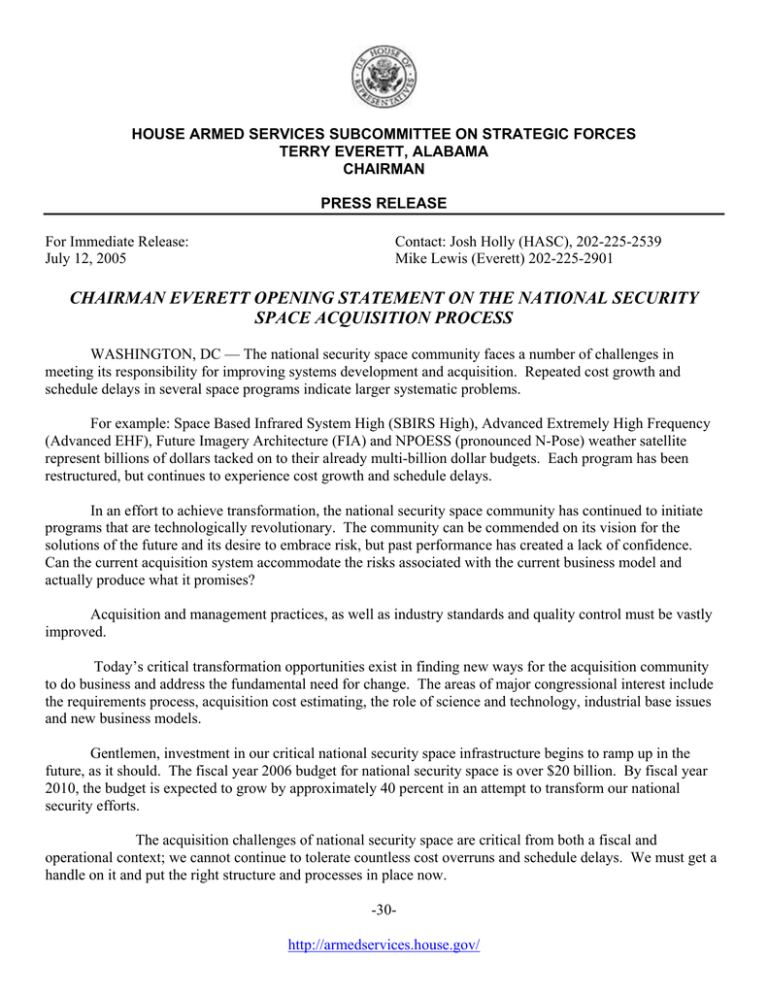
HOUSE ARMED SERVICES SUBCOMMITTEE ON STRATEGIC FORCES TERRY EVERETT, ALABAMA CHAIRMAN PRESS RELEASE For Immediate Release: July 12, 2005 Contact: Josh Holly (HASC), 202-225-2539 Mike Lewis (Everett) 202-225-2901 CHAIRMAN EVERETT OPENING STATEMENT ON THE NATIONAL SECURITY SPACE ACQUISITION PROCESS WASHINGTON, DC — The national security space community faces a number of challenges in meeting its responsibility for improving systems development and acquisition. Repeated cost growth and schedule delays in several space programs indicate larger systematic problems. For example: Space Based Infrared System High (SBIRS High), Advanced Extremely High Frequency (Advanced EHF), Future Imagery Architecture (FIA) and NPOESS (pronounced N-Pose) weather satellite represent billions of dollars tacked on to their already multi-billion dollar budgets. Each program has been restructured, but continues to experience cost growth and schedule delays. In an effort to achieve transformation, the national security space community has continued to initiate programs that are technologically revolutionary. The community can be commended on its vision for the solutions of the future and its desire to embrace risk, but past performance has created a lack of confidence. Can the current acquisition system accommodate the risks associated with the current business model and actually produce what it promises? Acquisition and management practices, as well as industry standards and quality control must be vastly improved. Today’s critical transformation opportunities exist in finding new ways for the acquisition community to do business and address the fundamental need for change. The areas of major congressional interest include the requirements process, acquisition cost estimating, the role of science and technology, industrial base issues and new business models. Gentlemen, investment in our critical national security space infrastructure begins to ramp up in the future, as it should. The fiscal year 2006 budget for national security space is over $20 billion. By fiscal year 2010, the budget is expected to grow by approximately 40 percent in an attempt to transform our national security efforts. The acquisition challenges of national security space are critical from both a fiscal and operational context; we cannot continue to tolerate countless cost overruns and schedule delays. We must get a handle on it and put the right structure and processes in place now. -30http://armedservices.house.gov/






